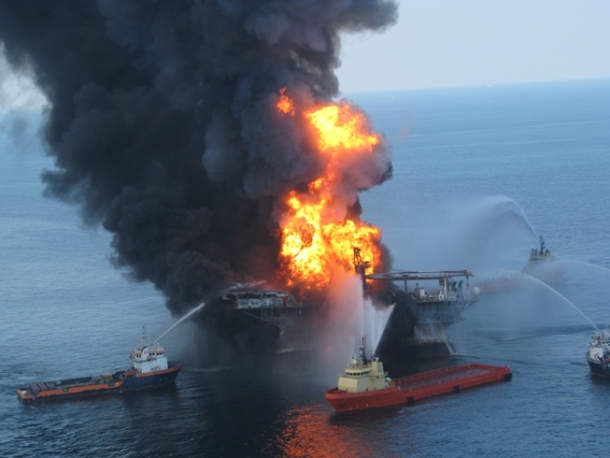In a 48-page report, the presidential commission wrote that the failures were "systemic" and likely to recur without industry and government reform.
The White House oil spill commission released an assessment on Wednesday, saying policies taken by oil firm British Petroleum (BP) and its partners in order to save time and money triggered the April explosion that led to the huge oil spill in Gulf of Mexico.In a 48-page report, the presidential commission wrote that the failures were "systemic" and likely to recur without industry and government reform.
But it said BP did not have adequate controls in place to ensure safety.
According to Wednesday’s assessment, which was released a week before its final report was due, the panel said BP and its collaborators on the Macondo well had lacked a system to ensure their actions were safe.
"Whether purposeful or not, many of the decisions that BP, Halliburton, and Transocean made that increased the risk of the Macondo blowout clearly saved those companies significant time (and money)," the commission said , a week before its final report was due.
An explosion at the Deepwater Horizon offshore rig in April killed 11 people.
The Macondo well, about a mile under the sea's surface, eventually leaked millions of gallons of oil into the Gulf of Mexico, damaging hundreds of miles of coastline before it was capped in July.
The commission concluded the spill was not an isolated incident caused by "rogue industry or government officials".
"The root causes are systemic and, absent of significant reform in both industry practises and government policies, might well recur," the report said.
But ultimately, the commission blamed poor management for the explosion at the rig, saying that when decisions were made, no one was considering the risk they were taking.
The panel underscores this conclusion with a quote from an email written by Brett Cocales, a BP engineer, just days before the disaster.
"But, who cares, it's done, end of story, will probably be fine and we'll get a good cement job,'' Cocales wrote, after he disagreed with BP's decision to use fewer centralizers than recommended.
Centralizers are used to center the pipe to ensure a good cement job.
The cement failed at the bottom of the Macondo well, allowing oil and gas to enter it, according to investigations.
BP’S COMMENT
BP said on Wednesday that the report, like its own investigation, found the accident was the result of multiple causes, involving multiple companies, but the company was working with regulators "to ensure the lessons learned from Macondo lead to improvements in operations and contractor services in deepwater drilling."
Kendra Barkoff, the interior department spokeswoman, said the report focused on areas in which the agency in charge of offshore drilling has already made improvements.
"The agency has taken unprecedented steps and will continue to make the changes necessary to restore the American people's confidence in the safety and environmental soundness of oil and gas drilling and production on the Outer Continental Shelf, while balancing our nation's important energy needs,'' she said in a statement.
